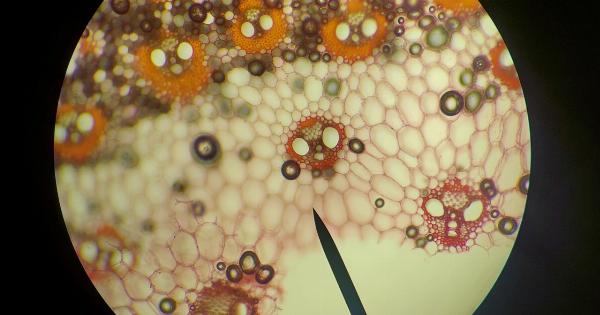Asthma is a chronic respiratory disease that affects millions of people worldwide. The condition results in inflammation of the airways, leading to difficulty in breathing.
Asthma symptoms include wheezing, shortness of breath, coughing, and chest tightness. Although the disease is treatable, asthma attacks can be life-threatening if not controlled.
What Causes Asthma?
Several triggers can cause asthma attacks. Some common factors that can cause asthma symptoms include:.
- Respiratory infections
- Polluted air
- Allergens such as pollen or pet dander
- Exercise
- Stress
- Certain medications
- Weather changes
Traditional Asthma Treatments
Traditional asthma treatments include bronchodilators and anti-inflammatory medications. Bronchodilators help to relax the muscles in airways, making breathing easier, while anti-inflammatory medications help reduce inflammation in the airways.
Although these medications can help to control asthma symptoms, they don’t always work for everyone. What’s more, these drugs can also cause side effects such as palpitations, tremors, and headaches.
The Role of Biological Factors in Asthma Treatment
In recent years, medical researchers have been focusing on the role of biological factors in managing asthma symptoms. These factors work by targeting specific molecules in the body that are responsible for inflammation and airway constriction.
Biological factors are designed to work with the body’s immune system to reduce asthma attacks at the source.
A Biological Approach to Asthma Treatment
Biological asthma treatments are typically administered as injections or infusions. These treatments are often reserved for individuals with severe asthma that doesn’t respond to traditional treatments.
The biological factors that have been shown to be effective in reducing asthma attacks include:.
- Omalizumab
- Mepolizumab
- Benralizumab
- Dupilumab
- Reslizumab
Omalizumab
Omalizumab is a biological factor that works by targeting IgE antibodies, which are responsible for triggering asthma attacks. Omalizumab prevents IgE from binding to allergens, reducing the severity of asthma attacks.
The drug is typically administered monthly and has been shown to be effective in reducing asthma symptoms.
Mepolizumab
Mepolizumab works by suppressing the production of eosinophils which are associated with airway inflammation. Mepolizumab is given as an injection every four weeks and has been shown to reduce asthma attacks in individuals with severe asthma.
Benralizumab
Benralizumab is a biological factor that targets eosinophils and suppresses their production. It’s typically administered every eight weeks and has been shown to be effective in treating severe asthma.
Dupilumab
Dupilumab is a biological factor that targets inflammation by blocking interleukin-4 and interleukin-13 signals. It’s administered as an injection every two weeks and has been shown to be effective in reducing asthma attacks.
Reslizumab
Reslizumab works by suppressing the production of eosinophils and is typically administered as an intravenous infusion every four weeks. It has been shown to reduce asthma attacks in individuals with severe asthma.
Conclusion
Biological factors have opened up new avenues in the treatment of asthma.
Although traditional treatments such as bronchodilators and anti-inflammatory medications can help control asthma symptoms, biological factors have been shown to be effective in reducing the frequency of asthma attacks.
It’s essential to consult your healthcare provider to determine the most appropriate treatment plan for your individual case of asthma.





























